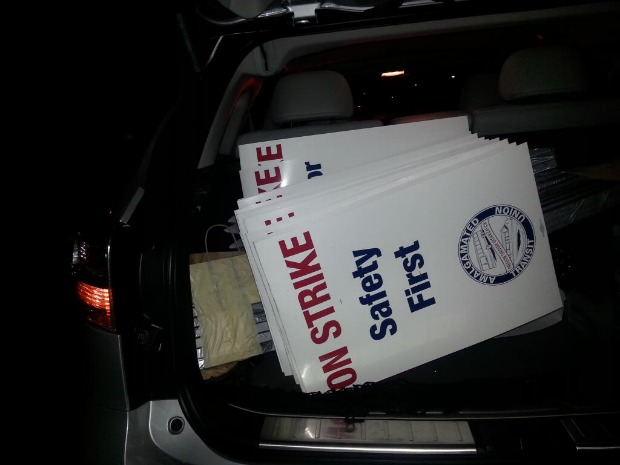
State legislation prohibiting BART strikes is the best way to avoid future labor standoffs like the one that led to a strike this week, but it will only work if it’s structured correctly, a noted Bay Area labor law scholar said today.
William Gould, a professor emeritus at the Stanford Law School, said state elected officials could head off the strike today if Gov. Jerry Brown called an emergency session of the state legislature, but appear to lack the political will to do so.
See all Appeal coverage Of BART’s second strike of 2013 here
“This is an area where strikes are not a suitable mechanism to resolve disputes because of the extraordinary harm to the public that can be done,” Gould said.
Calls for a ban on future strikes have been heard, however, with Orinda City Councilman Steve Glazer, a candidate for an Assembly seat, among the most vocal.
Inspired by the BART strike, Glazer has been gathering signatures on a petition since late last month that would bar transit employees in California from walking off the job. While he has not released exact numbers, signatures number are in the thousands, Glazer has said.
Gould said such legislation was ultimately the best answer, but only if it is coupled with a requirement that both sides submit to what he called “final offer arbitration,” a method used by Major League Baseball, among other agencies.
Under traditional arbitration, the arbitrator can simply split the difference between high and low offers, reaching a halfway solution, Gould said.
While that might sound fair, in practice it encourages both sides to make extreme demands and discourages them from settling things on their own, Gould said.
In final offer arbitration, the arbitrator can choose only one of two competing proposals. While that might sound less fair, the ultimate effect is that it pushes both sides to work things out at the bargaining table and make more reasonable offers that have a better chance of being accepted, Gould said.
Without a provision for arbitration, however, Gould warned that a one-sided ban on strikes could actually make the relationship between labor and unions worse, and potentially push the union to resort to illegal actions.
Past strikes, such as the one in 1997, have sometimes been resolved in part with the help of outside elected and labor officials.
Gould said that is an unlikely outcome this time around, though, because the federal mediator working on negotiations, George Cohen, is already the “best in the country.”
“If he can’t do it, then I don’t think anybody can,” he said.
Gould said the most likely outcome, at this point, appears to be a move into arbitration. Union officials have said several times that they would be willing to enter into arbitration on issues relating to work rules, while BART officials have said they will only agree to arbitration on the contract agreement as a whole.
Regardless, however, a legislative solution is needed to prevent future strikes, Gould said.
Sara Gaiser, Bay City News









